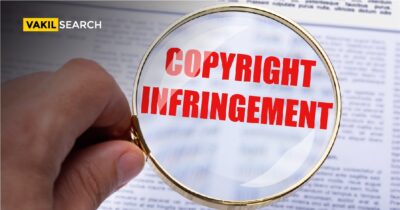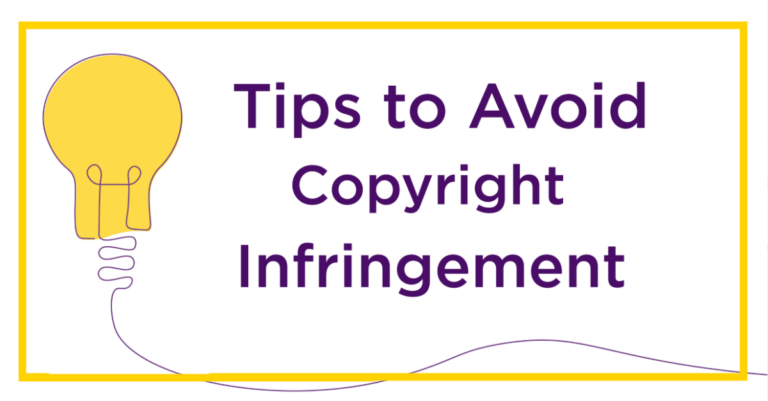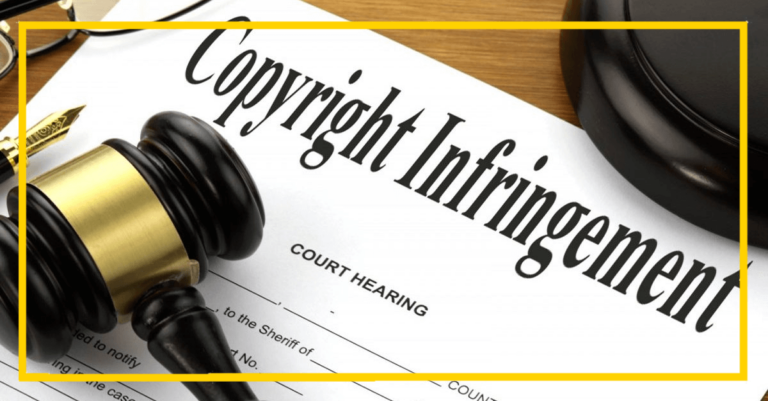Vakilsearch explores how social media affects copyright infringement and offers advice on how to stop it. If you download a picture from the internet and upload it to your blog, website, or social media account, you are probably violating someone else's copyright. Without the creators' consent, you cannot incorporate user-generated content or photos in your content strategy.
How to Avoid Copyright Infringement in the Age of Social Media?
If you’re an active social media user, you might have come across instances where you shared someone’s copyrighted content. In the age of social media, copyright infringement has become more prevalent than ever before, and it’s essential to avoid it. Getting the required authorisations, like a license from the copyright owners or authorisation under the fair use doctrine, might be helpful. Additionally, you can reduce copyright infringement by educating yourself and your staff about copyright law and the Impact of Social Media on Copyright Infringement. Remember, prevention is always better than cure!
Why Copyright Matters in the Age of Social Media?
Copyright is a legal concept that protects the rights of creators and owners of original works, such as music, books, films, and art. Copyright has gained more importance than ever in the age of social media, where content can be easily shared and disseminated. Copyright infringement can have significant financial and reputational consequences for both individuals and organisations and need all stakeholders to understand the implications of violating copyright law on social media.
What Makes Up Under Infringement?
Copyright infringement occurs when someone uses, reproduces, or distributes copyrighted material without the permission of the copyright holder. This can include sharing images, videos, or music on social media platforms without obtaining the necessary permissions or licenses. Even if a user credits the original creator of the content, they may still be liable for copyright infringement if they do not have permission to use the content.
Copyright Infringement and Liability
Individuals and organisations that infringe on copyright can face significant legal and financial liabilities, including damages, fines, and even criminal charges. In some cases, social media platforms may also be held liable for copyright infringement if they do not take adequate steps to prevent it. Social media platforms have implemented various measures to tackle copyright infringement, such as content filtering, copyright takedown procedures, and collaborating with copyright owners to prevent the illegal sharing of their content on the platform.
Steps to Prevent Copyright Infringement on Social Media
IP India Copyright Infringement – To prevent copyright infringement on social media, individuals and organisations can take several steps, including:
- Obtaining the necessary permissions or licenses to use copyrighted material.
- Educating themselves and their employees about copyright law and the implications of copyright infringement
- Using copyright-friendly platforms that have measures in place to prevent copyright infringement, such as YouTube’s Content ID system or Instagram’s Rights Manager
- Monitoring their social media channels for unauthorised use of copyrighted material
- Seeking legal advice if they are unsure whether their use of copyrighted material is legal.
Be Vigilant with the Content You Use on Social Media
As social media becomes an increasingly important part of our lives, it is essential that we all take steps to avoid infringing on copyright. By being vigilant with the content we use on social media and taking steps to obtain the necessary permissions and licenses, we can help protect the intellectual property rights of creators and copyright holders.
Principle of Fair Use
In the Act, the phrase fair dealing is not defined. It is a legal principle that permits someone to utilise copyrighted content in certain circumstances without the owner’s consent. The specific facts and circumstances of each instance would determine whether or not someone is using copyright material in a fair manner. It is difficult to distinguish between fair dealing and infringement. The quantity of words or paragraphs that may be used without the author’s consent is not specifically regulated in India. Only the Court, using common sense, may make this determination. However, it may be argued that the piece that is taken should be written so as to not interfere with the author’s legitimate interests.
FAQs on Impact of Social Media on Copyright Infringement
Can I use copyrighted material on social media if I give credit to the original creator?
No, giving credit to the original creator does not necessarily mean that you have the necessary permissions or licenses to use the copyrighted material. You should always obtain permission or a license from the copyright holder before sharing their content on social media.
Can I use copyrighted material on social media for educational purposes?
Under the fair use doctrine, limited use of copyrighted material for educational purposes may be permissible. Yet, it is essential to ensure that the use falls within the parameters of fair use and does not infringe on the copyright holder's rights.
What can I do if my copyrighted material is being used without my permission on social media?
If you discover that your copyrighted material is being used without your permission on social media, you can file a copyright infringement claim with the social media platform. The platform may then remove the infringing content or take other measures to address the infringement.
Conclusion
The popularity of social media has created new challenges for copyright holders and individuals, making copyright infringement more widespread. It’s crucial to understand the legal and ethical implications of copyright infringement on social media and take measures to prevent it. This includes getting the necessary permissions and licenses, educating yourself and your staff about copyright law, and monitoring your social media channels for unauthorised use of copyrighted content. By taking these steps, you can help protect the intellectual property rights of creators and copyright holders. For more information, feel free to contact our legal experts at Vakilsearch.
Also, Read:









